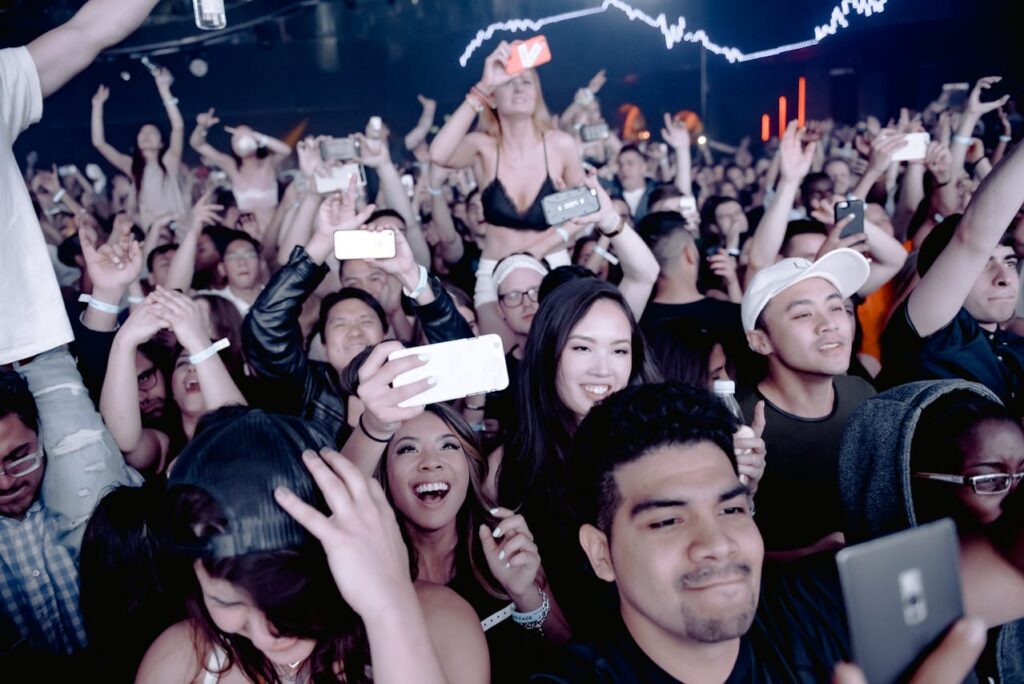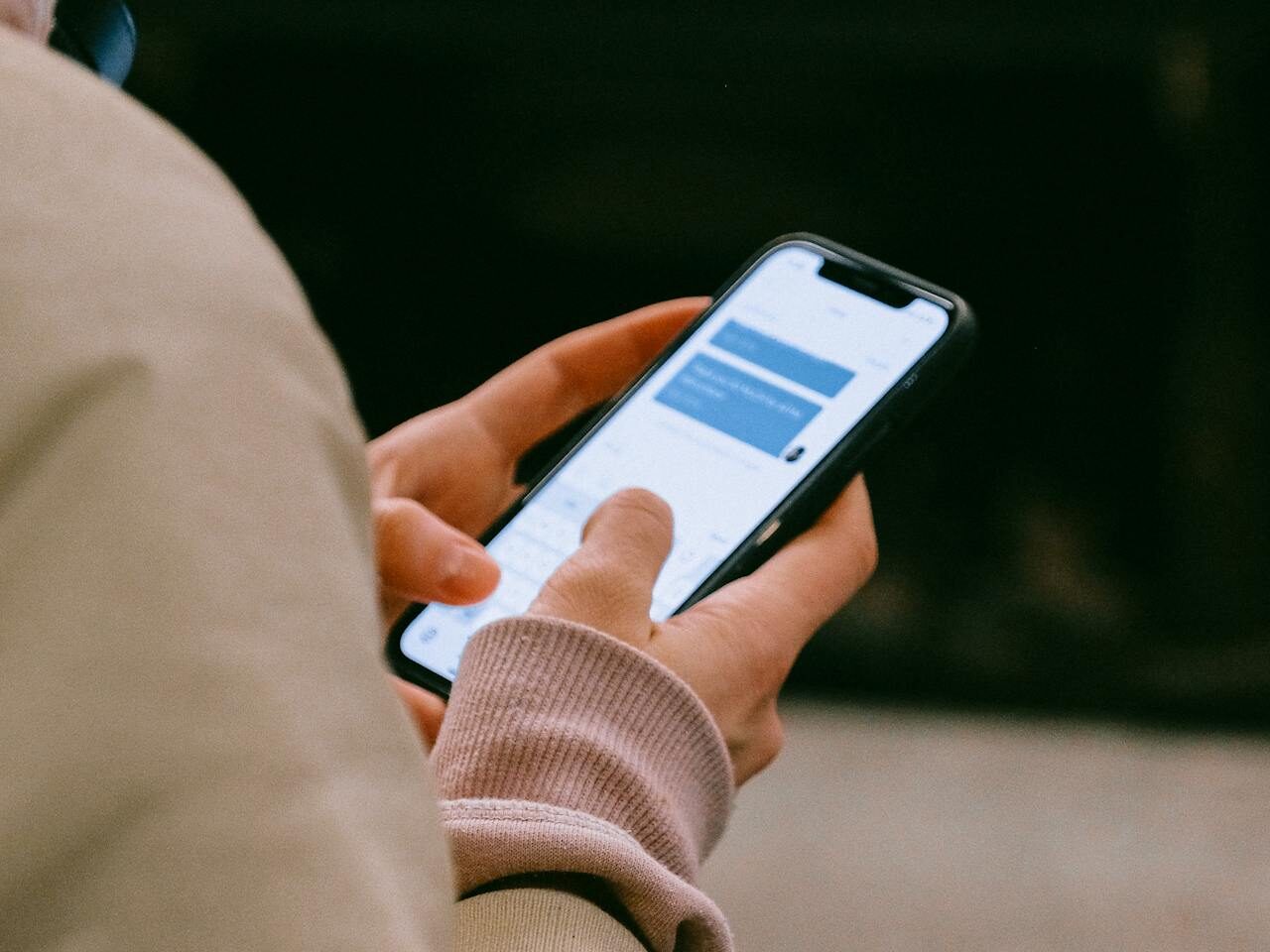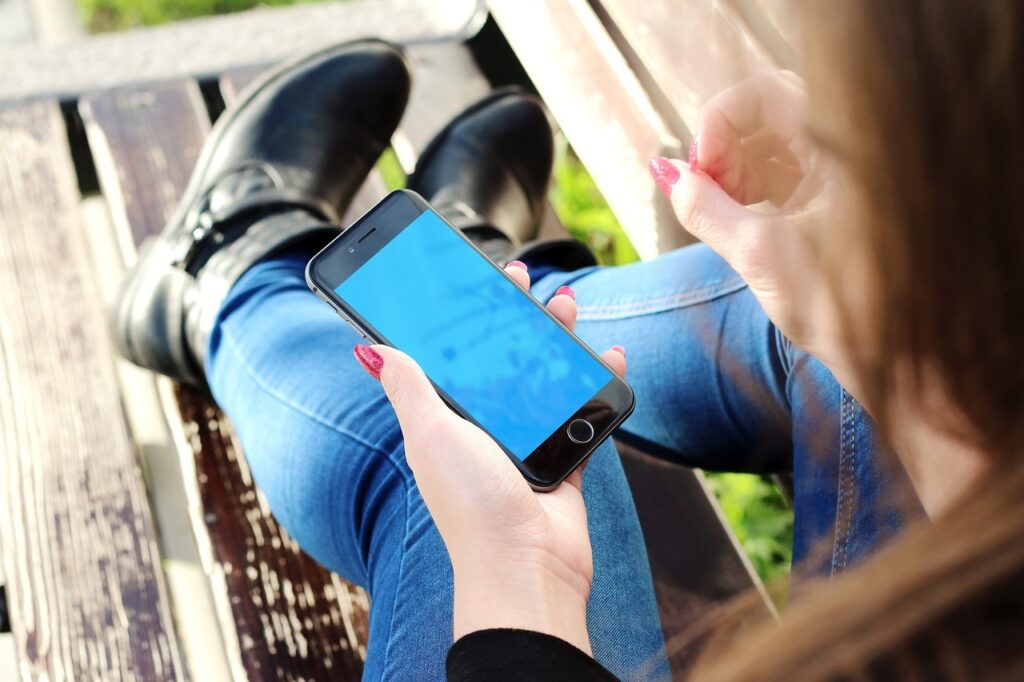1. The Fear of Missing Out (FOMO)

One of the primary challenges of unplugging from digital devices is the overwhelming sense of Fear of Missing Out (FOMO). In today’s connected world, many people feel that staying online is necessary to stay in the loop with what’s happening in social, professional, and cultural spheres, according to Bella Grace. The constant notifications, updates, and news flashes create pressure to remain connected at all times. When you try to unplug, this fear can be amplified as it feels like you’re missing essential information, conversations, or opportunities. You may feel left out or disconnected from your friends, work, or global events, which makes the idea of disconnecting seem even more daunting. This pervasive feeling can make it incredibly difficult to maintain any period of digital detox, as the pull to check in frequently becomes nearly irresistible.
Additionally, there’s a psychological component to FOMO, as social comparison often plays a role in the way people feel about staying connected. Seeing others share their experiences, adventures, or professional accomplishments can create a sense of urgency to remain plugged in so you don’t feel excluded. Over time, this can lead to a cycle of compulsive checking, which makes unplugging feel like an unattainable goal. This emotional attachment to digital connectivity makes it harder than ever to step away, even for short periods.
2. The Pressure to Be Available 24/7

In a hyperconnected world, being always available has become the norm, particularly in work and social environments. The pressure to respond quickly to emails, text messages, social media comments, and even phone calls can make it incredibly difficult to take time off from digital devices. Many people are worried that disconnecting for even a short while could be seen as unprofessional or disrespectful, especially in work-related contexts, according to eTherapypro. This pressure to be constantly reachable can be overwhelming, and it may feel like stepping away from your devices would create a gap in productivity, customer service, or social relationships. The fear that opportunities or relationships might suffer from a brief unplugging period becomes a major barrier to digital detoxing.
As digital communication increasingly becomes the backbone of modern work environments, especially in industries that rely on quick response times, there is a growing belief that unplugging might risk missing critical deadlines, business opportunities, or important team discussions. Similarly, in personal contexts, the pressure to always respond to calls, texts, and social media messages can create an emotional dependency on being constantly available. This need for instant communication, combined with the fear of losing touch, makes it harder for people to step back and disconnect from the overwhelming digital noise.
3. Habitual Use of Technology

For many, the use of digital devices has become a habit ingrained into their daily routines. From waking up to checking emails and social media to falling asleep with a phone in hand, technology has woven itself into every aspect of life. These routines are deeply embedded in people’s behavior, and breaking free from them requires conscious effort. Unplugging from technology, then, becomes a challenge because it often means disrupting deeply ingrained patterns of behavior. The urge to pick up the phone, check social media, or glance at emails becomes almost automatic. According to the American Psychological Association, breaking these habits requires mindfulness and intention, and in many cases, people don’t even realize how much they’ve become dependent on these devices until they try to take a break.
Additionally, many people use technology to fill idle moments—whether it’s during a commute, while waiting in line, or when winding down at night. Over time, these small digital distractions can add up and contribute to a constant need for stimulation. As a result, when people attempt a digital detox, they often experience withdrawal symptoms, such as feeling bored or unproductive, which makes it harder to stay away. Technology becomes a source of comfort and a way to keep the mind occupied, and stepping away from it can leave an unexpected gap, creating a sense of discomfort. It’s this habitual dependence that makes unplugging such a difficult process to maintain over the long term.
4. The Need for Constant Stimulation

In a world where constant stimulation is readily available at the touch of a button, unplugging can be incredibly difficult. Digital devices, with their social media updates, news cycles, and streaming content, provide an endless stream of entertainment and information. This constant influx of sensory input creates a cycle where people feel the need to be continuously engaged, and when trying to unplug, they often find themselves struggling with boredom, according to PubMed Central. Unlike earlier generations who might have had to engage in offline activities like reading or spending time outdoors, many people today are accustomed to the fast-paced stimulation technology provides. Without this constant input, it’s common for individuals to feel like they’re missing out or becoming disconnected from society.
Digital detoxing, therefore, can be uncomfortable for people who have become accustomed to this high level of stimulation. Without their devices, individuals may feel restless or unnerved by the silence or lack of activity. This is especially true for younger generations, who have grown up in an environment where screens are an integral part of their daily lives. The need for constant engagement and entertainment creates a tension between wanting to unplug for health reasons and feeling the need to stay entertained at all times. The fear of inactivity or boredom can make the process of unplugging seem overwhelming.
5. Work-Related Expectations

The rise of remote work and digital workplaces has made it more difficult than ever to unplug. While work used to have defined boundaries, such as office hours and physical spaces, the shift to a digital first world means that work can follow people home, into their personal time, and even during weekends and vacations, according to Virtual Staff. The expectation to always be reachable through emails, instant messages, and even virtual meetings makes it seem impossible to take a true break from digital devices. The blurred boundaries between work and personal life create a situation where it’s difficult to fully unplug without feeling that you’re neglecting your responsibilities or letting colleagues down.
As people strive for better work-life balance, the constant demands of digital communication have created a culture of “always on.” Digital detoxing becomes even harder when work-related matters spill into personal time. Many individuals feel compelled to remain plugged in because they don’t want to miss important updates or feel like they’re not fulfilling their duties. This work pressure, compounded by the increasing demand for quick responses in digital communication, makes it incredibly difficult to establish a healthy work-life separation, which is key to a successful digital detox.
6. The Allure of Social Media Validation

Social media platforms like Instagram, Facebook, and Twitter are designed to offer constant validation through likes, comments, and shares, making it incredibly addictive to check updates regularly. Many people find it difficult to disconnect because of the allure of receiving social approval. These platforms cater to the human need for recognition and connection, which creates an emotional attachment to checking notifications and remaining active online. When you unplug, there’s a fear that you’ll miss the opportunity to engage with followers or update your profile with the latest content that could boost your self-esteem. The addiction to social media can make digital detoxing feel like an impossible challenge, as the desire for instant gratification becomes a barrier to stepping away.
Social media validation often leads to a sense of dependency, where the value of one’s self-worth is tied to online feedback. For those who thrive on the recognition and connection that digital platforms provide, unplugging can feel like losing part of their identity. The fear of losing followers, attention, or relevance leads to a cycle of compulsive checking. As a result, taking a break from social media becomes not just about detoxing from the digital world but also about confronting the emotional attachment and dependency people have built with their online identities. Unplugging requires not only stepping away from devices but also confronting these deeper emotional ties.
7. Unresolved Work or Personal Matters

When you are surrounded by a constant stream of information and updates, it’s easy to feel like there are always tasks that need to be managed. Whether it’s emails that need responding to, appointments that need confirming or social media interactions that require attention, the sense of unresolved matters can make unplugging seem nearly impossible. People often feel the pressure of unfinished business and the thought that stepping away from their devices could result in things slipping through the cracks. This constant background hum of to-do lists can prevent them from fully embracing a digital detox.
In both professional and personal spheres, unresolved tasks create an emotional and mental burden. The fear that something important might be missed during a period of unplugging makes it difficult to fully disconnect and recharge. People tend to feel that they are obligated to stay connected in order to keep their responsibilities in check. Whether it’s dealing with work projects or family matters, this sense of duty makes taking a break from technology feel like an indulgence or even a luxury. The reality is that unplugging can often bring clarity and focus, but overcoming the feeling of never being able to step away is a significant challenge for most.
8. Dependency on Digital Entertainment

Many people have grown accustomed to using digital devices for entertainment, whether it’s binge-watching TV shows, streaming music, or playing games. The idea of unplugging becomes challenging because these forms of entertainment are so easily accessible and often provide instant gratification. For years, people have relied on their devices to pass time, escape from stress, or unwind after a long day. When you attempt to disconnect, it may feel like you are giving up a primary source of relaxation. The idea of spending time without entertainment feels uncomfortable, leaving individuals anxious about what they will do in the absence of their digital outlets. This dependence on digital entertainment can make it incredibly hard to maintain a digital detox, as the devices often represent a comforting source of distraction and relief.
Additionally, many digital entertainment options are designed to be highly engaging and habit-forming, with endless content and personalized recommendations. The fear of missing out on the latest episodes, trending videos, or viral content makes it difficult to resist the temptation to pick up a phone or open a laptop. This entertainment-driven dependency is one of the major barriers to unplugging, as it often requires a significant mindset shift to enjoy more offline activities. For those who are used to turning to their devices for entertainment, unplugging feels like a sacrifice of one of the primary ways they fill their leisure time, creating a mental hurdle to overcome.
9. The Fear of Losing Professional Edge

In our increasingly digital world, professionals feel a heightened need to remain constantly engaged with the online landscape to maintain their professional edge. In many industries, staying informed and connected with clients, colleagues, and industry developments is seen as essential for success. The fear of falling behind or missing a career-advancing opportunity is a significant barrier to unplugging. Professionals worry that being offline could result in missing important networking events, client communications, or even job offers. This professional pressure can make digital detoxing feel almost impossible, as it’s perceived as an obstacle to career advancement.
Moreover, the rise of remote work and the gig economy has created a situation where professionals feel they must be always on, even after regular working hours. Emails, virtual meetings, and work-related chats demand immediate attention, creating the fear that disconnecting would lead to missed opportunities or unfulfilled obligations. The constant need to stay connected to work-related platforms creates a belief that unplugging could negatively affect your professional reputation, making it harder for people to step back from their devices, even for short periods. The pressure to always be connected to your career can undermine any effort to balance work with personal well-being.
10. Social Media Algorithms and Notifications

The design of social media platforms contributes significantly to the difficulty of unplugging. These platforms are powered by sophisticated algorithms that continuously push new content to users, keeping them hooked and engaged. Push notifications and algorithm-driven feeds create an environment of constant stimuli that make it difficult to ignore. Social media platforms are specifically engineered to keep users scrolling, clicking, and interacting. The pressure to keep up with these ever-changing streams of information makes unplugging feel like a challenge, as it requires resisting the urge to check notifications or look for new content.
This continuous feed of personalized content caters to people’s preferences and habits, ensuring that there is always something new and relevant to consume. Even if you try to put your phone down, the fear of missing out on notifications or the next viral trend keeps many people returning to their devices. Unplugging means confronting the reality of not knowing what’s happening in your digital networks, and that can be unsettling. The highly engaging nature of social media makes it difficult to escape its grip without feeling that you are missing something critical or important.
11. Habit of Checking News and Updates

In today’s world, staying up to date with the news is seen as essential for navigating social, political, and personal life. Whether it’s global news, local events, or trending topics, the desire to stay informed has made it harder than ever to unplug. People often feel the need to check news websites, apps, or social media platforms regularly to catch up on the latest stories. This constant craving for updates becomes ingrained in daily routines, making it feel unnatural to disconnect from digital sources of information. As a result, many people fear that unplugging means becoming disconnected from important news that could affect their personal or professional lives.
Moreover, the rise of 24-hour news cycles and the increasing pressure for quick updates and live coverage of breaking events have fueled the addiction to being always informed. The idea of stepping away from digital news sources often brings a sense of anxiety and the fear of being out of the loop. As news is now constantly being updated and broadcasted through digital channels, unplugging from this flow feels like an abandonment of an essential part of modern life. Unplugging from news feeds means dealing with the emotional discomfort of not knowing what’s happening in the world, making it more difficult for people to take a digital break.
12. The Pressure to Maintain Online Presence

For many people, maintaining an online presence is no longer optional—it’s a requirement. Whether it’s for professional networking, personal branding, or simply staying in touch with family and friends, being active on social media platforms has become a key part of many individuals’ lives. This need to stay visible online creates a psychological pressure to constantly post, update, and engage. The idea of unplugging can feel threatening to personal identity, as many people now see their digital profiles as an extension of their real selves. Taking a break from social media can cause feelings of insecurity, as if you’re losing relevance or not keeping up with the fast-paced online world.
This pressure to maintain an online presence can be particularly intense for individuals with a large online following, whether in personal, business, or influencer contexts. The fear that unplugging could lead to losing followers, audience engagement, or visibility makes it difficult to take a step back. As social media has become a crucial part of personal and professional self-promotion, people feel that their digital activity needs to be consistent and strategic. Taking a break can feel like risking a loss of social relevance, and the pressure to keep engaging with online communities makes unplugging feel almost impossible.
13. The Anxiety of Disconnecting Completely

Finally, disconnecting completely can evoke a deep sense of anxiety for many individuals. The idea of stepping away from digital devices and going offline for an extended period can feel like a major disruption to one’s sense of control. For some, digital devices and constant connectivity have become a security blanket, a way to stay in touch with the world, manage tasks, and maintain social interactions. The thought of being unavailable, even for a few hours, can create feelings of vulnerability and a fear of being left out of important conversations, decisions, or opportunities. The idea of being disconnected from all things digital can also stir up a sense of loneliness or isolation—especially for those who rely on their devices for socializing.
This anxiety about disconnecting is further fueled by the expectation that we must be able to respond to anyone, anytime, and anywhere. The constant bombardment of emails, texts, and social media messages can create a sense of obligation to stay connected, making the idea of unplugging feel like a luxury rather than a necessity. Overcoming the fear of being out of the loop or feeling detached from society is a significant challenge in the quest to unplug. The difficulty of digital detoxing comes from this underlying fear of being left behind, overlooked, or unimportant, making true disconnection feel unattainable for many.


